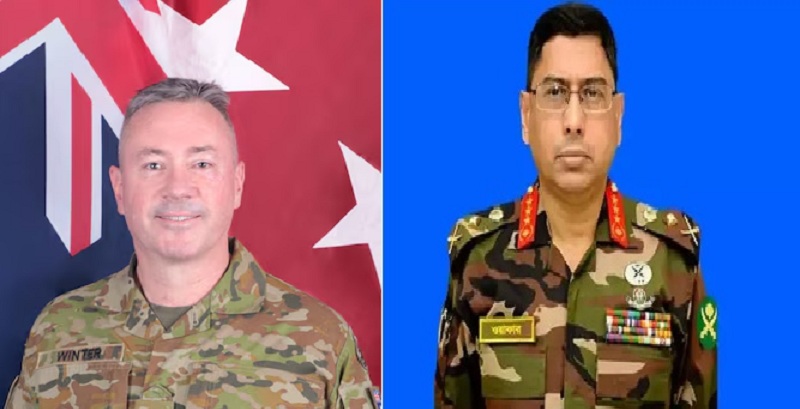A seven-member team of American officials, led by a major general in the US Army Pacific Command (USARPAC) reached Dhaka today, slightly over a month after another high-level team comprising State, Defence and Treasury departments, besides the Pentagon, held deliberations with Bangladeshi officials.
Bangladeshi government sources disclosed to Northeast News that the seven-member team is being led by Major General Scott A Winter, Deputy Commanding General, Strategy Plans for the USARPAC, located at Fort Shafter, Hawaii. The USARPAC is America’s “theatre army for the Indo-Pacific”.
Before joining USARPAC, Maj Gen Winter served as Commander of the 1st (Australian) Division, the Australian Army’s deployable warfighting formation. In this role, Major General Winter was responsible for all of the Army’s overseas activities, including participation in Exercise Yama Sakura, Exercise Freedom Shield, Exercise Super Garuda Shield and in Exercise Talisman Sabre.
US Government and Legislative Affairs Director Russell Gibson is also part of the American team. He is located at the Orgean-based Military Department, US Army War College. The others on the team are Jared William Carpenter, Michael Reid Sattem, Sara Jeanette Albertson, Joshua Hamilton Geiger and Darren Allen Thurman.
Significantly, Maj Gen Winter’s visit follows three days after Bangladesh’s army chief General Waker-uz-Zaman paid a visit to the US where he met a host of Pentagon and State Department officials before heading for Canada where he also met military officers. The US team, which will be lodged at Gulshan’s Westin Hotel, will leave Dhaka on November 1.
Gen Zaman’s 11-day visit to the two Western countries was a low-key affair with the Bangladeshi military establishment projecting it more as a routine trip although Dhaka-based political analysts attach a lot of importance to it, especially in the wake of the July-August political upheaval which led to the overthrow of the Sheikh Hasina regime.
A Bangladesh Inter-Services Public Relations release said on October 15 that Gen Zaman would meet “high-ranking military and civilian officials of the UN Headquarters, the US and Canada to discuss matters related to the UN peacekeeping mission, increasing the capacity of the army, developing bilateral relations and determining the future course of action and discuss various issues of mutual cooperation”.
Gen Zaman, who has had to traverse a difficult political terrain since the time he took over as Bangladesh’s army chief, has been in the crosshairs of the Mohammad Yunus-led interim regime which has been against the continuation of President Mohammad Shahabuddin ‘Chuppu’.
A few days ago, a small section of students, who had spearheaded the movement that led to Hasina’s ouster, sought to lay siege to Banga Bhaban, the presidential residence, in a bid to force ‘Chuppu’ to resign. But ‘Chuppu’ stuck on even as he sent out a defiant message that he would not step down in the face of a violent agitation.
The agitating students, however, now appear to be divided and their movement appears to have lost momentum. This was evident from the meager presence of students outside Banga Bhaban, indicating that the movement was now on the wane.
On his part, Gen Zaman, who was appointed by the erstwhile Sheikh Hasina regime, has so far been able to maintain a balance both within and outside Bangladesh.
ALSO READ: Emerging India-China bonhomie will impact Bangladesh’s domestic politics
His visit to the US and Canada, Bangladeshi political analysts said, was marked not only by the “instructions” that he may have been given there but was also aimed at “sizing up” the American moves in Bangladesh and the neighbourhood.















